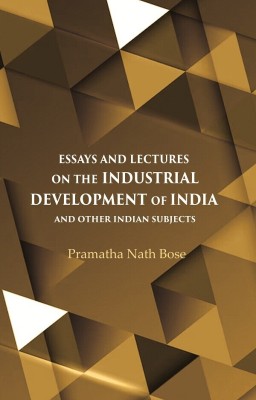Essays and Lectures on the Industrial Development of India And other Indian Subjects(Paperback, Pramatha Nath Bose)
Quick Overview
Product Price Comparison
About The Book: The book addresses various topics including the 'Industrial Development of India', the Caste System in Hindu Society, and the significance of the Industrial Conference in India's economic evolution. It emphasizes the significant decline in India's industries and its detrimental impact on the artisan classes. Previously, India had a thriving manufacturing industry, particularly in cotton goods, which has now been replaced by a focus on exporting raw materials. The author supports this argument with statistical evidence, highlighting the drastic shift in India's trade patterns and the negative effects on the economy.The book also explores the deep-rooted influence of the caste system in Hindu society. It explains how caste regulations govern every aspect of a person's life, and the close relationship between religion and caste. Violating caste rules is not only a social transgression but also considered a religious heresy. The essay emphasizes that religion, for many Hindus, revolves around strict adherence to caste norms, shaping their identities and interactions. Furthermore, the author acknowledges the significance of the Industrial Conference within the National Congress for India's economic development. However, they express the need for more proactive, practical, and systematic approaches to fully capitalize on its potential. While appreciating the informative papers from the previous conference, the author expresses disappointment with the resolutions passed, deeming them inadequate. Considering that it was the first conference of its kind for all of India. About The Author: Pramatha Nath Bose (1855 ŌĆō 1934) was an eminent geologist and paleontologist from India who made significant contributions in his field. He received his education at Krishnagar Government College and later pursued studies at St. Xavier's College of the University of Calcutta. In 1874, he was awarded the prestigious Gilchrist scholarship, enabling him to pursue further studie


